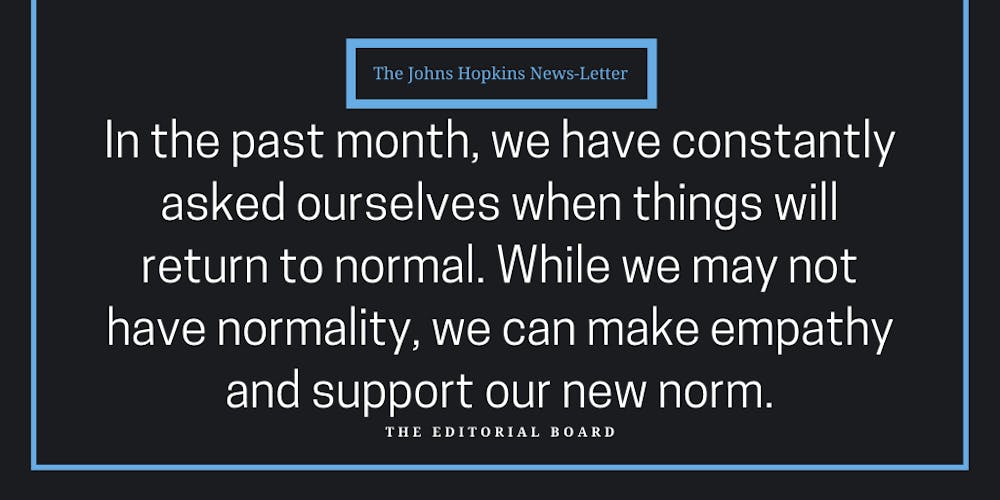We don’t know when we will next be on campus, but someday we will be. And when we are, things will not be as they once were.
Many of us will be returning knowing loved ones who have contracted the virus. Some of them may have recovered; others may have succumbed. Some of us may return having survived the virus. Many of us may contract it.
Because when we return to campus this fall, the pandemic will not be over. We will not have a vaccination for at least another year. We will be returning amid an ongoing pandemic and likely an ongoing recession, one that may be as damaging — if not more — than the 2008 financial crisis.
It’s impossible not to notice the drastic changes that have already occured. COVID-19 diagnoses around the world continue to soar. A significant number of Americans already personally know people who have been infected. In the U.S., millions of people are staying at home, working and learning remotely to the best of their abilities. Unemployment claims have skyrocketed as the pandemic has temporarily shut down the economy.
The pandemic has exposed and exacerbated the country’s already existing inequities. In Maryland alone, racial disparities are becoming clearer, as 53 percent of related deaths and 49.4 percent of those infected are black. The state’s population is only 30 percent black. A similar trend is visible nationwide, with black patients making up one-third of hospitalizations in the first month of the outbreak.
Financial inequality also dictates who will be most impacted by the pandemic. Many essential workers do not have the financial security to opt out of work. They are forced to risk their lives and the lives of their loved ones on a daily basis.
Hopkins has taken important steps to address some of these inequities. The implementation of a universal Satisfactory/Unsatisfactory (S/U) grading system has alleviated a major source of stress for some students who might be disproportionately affected by the virus. Hopkins is also offering a partial tuition refund to some seniors. Residential students have received nearly full refunds for housing and dining services.
The University’s actions to support First-generation/Limited-income (FLI) students have also been largely positive. Case managers worked with students on a one-on-one basis to alleviate food insecurity and ensure they were able to book flights home and access online learning resources.
We recognize that there is no one correct response to something as unprecedented as the COVID-19 pandemic. However, the University must continue to do more to recognize the inequalities and disparities that pose challenges to some members of the Hopkins community. Why is Hopkins, a school with an endowment of over $4 billion, taking so long to decide whether or not to pay its subcontracted workers? Why is the University not compensating Resident Advisors for their room and board, when other students have already received refunds? It is up to the University to consider these disparities, and to do what it can to help alleviate them.
In this time of crisis, we have seen Hopkins students come together. Just days after the announcements to leave campus, students opened their homes and started community resources to assist each other. They created the Baltimore Mutual Aid Spreadsheet to help members of the Hopkins and Baltimore community. They are fighting to keep Baltimore businesses afloat by encouraging people to buy gift cards to beloved Charles Village establishments.
Students also started a number of petitions, from encouraging alternative grading policies to urging Hopkins to pay its workers. Some of these petitions even received enough support to prompt responses from the University.
At a time when we must rely on each other more than ever, the student body has stepped up. We must ensure that this marks a permanent shift in our campus culture. In the past month, we have constantly asked ourselves when things will return to normal. While we may not have normality, we can make empathy and support our new norm.





